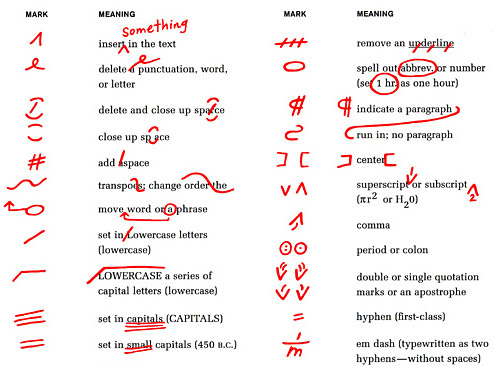Editing your own writing is hard, but according to recent research it seems 73% of bloggers act as self-editors. It’s far too easy to miss things in the self-editing process because your brain knows what you meant to say even if it’s not what’s really on the page. This is a particular risk when you care deeply about your mission and change messages. The problem is when your target audience picks up errors or inconsistencies, they begin to question the quality of the product or your credibility as a service provider and changemaker. To help you avoid this fate, here are 6 tips for editing your own writing.
1. Sleep on it
A little distance between writing, proofing and editing lets your brain see words and phrases with fresh eyes. After a late night of writing, I’m often amazed the next day by the opportunities for improvement. Go out for a walk, have a cup of coffee, read a book, or just about anything to get your mind off what you just wrote.
2. Do It Differently
If you use a screen to write and read, try using an old-fashioned paper print out for proofing and editing. Or try reading your piece out loud. The objective is to shake your brain from its usual patterns.
3. Check for Insider Talk
Arcane acronyms and jargon can seem self-explanatory when you’re spending most of your time with others in your inner circle. But outside in the wider world, few will understand what you’re trying to say. I recently witnessed bewilderment and frustration at a board meeting when a government guest speaker referred to his and other government agencies and programs only by acronyms for nearly ten minutes — until finally someone interrupted to ask if English could be used to explain what he was talking about.
This error can carry extra weight if you are seeking to inspire social change. Studies indicate, for example, that ‘EPA’ has become a trigger-acronym viewed more negatively than its namesake, “Environmental Protection Agency.”
Stop using industry acronyms and jargon, and when it cannot be avoided, define the term the first time it is used.
4. Minimize Passive Voice
If change and action is what you are after, be direct and clear about who did what to whom. Politicians like to use passive voice to obscure who is taking the action or who is responsible. Ronald Reagan famously said, “Mistakes were made,” when referring to the Iran-Contra scandal. Passive sentences aren’t incorrect; it’s just that they often aren’t the best way to phrase your thoughts. Sometimes passive voice is awkward and other times it’s vague. Passive voice is also usually wordy, so you can tighten your writing if you replace passive sentences with active. (The climate is being warmed vs. We are warming our climate.)
5. Eliminate Third-Person Impersonal
Instead of “the government” or “the climate,” try “our government” and “our climate.” Switch to pronouns like our, we, us, you, and your to make concepts less abstract and paint people into the picture.
6. Cut Unnecessary Big Words
Intellectual or technical words get your point across, but can leave the impression you’re trying to show off your vocabulary rather than communicate with others. There’s a reason newspapers are written at high school reading level. Weave descriptive, short strong words into your writing and you’ll notice a big difference.
Tell your stories well
Even the best writers need editors. Use these 6 tips as a quick checklist when the lack of time or money push you to edit your own writing. The stories we tell as changemakers are important; as are the words we choose, the symbols we evoke, and the metaphors we draw on to tell them. Tell your stories well.



